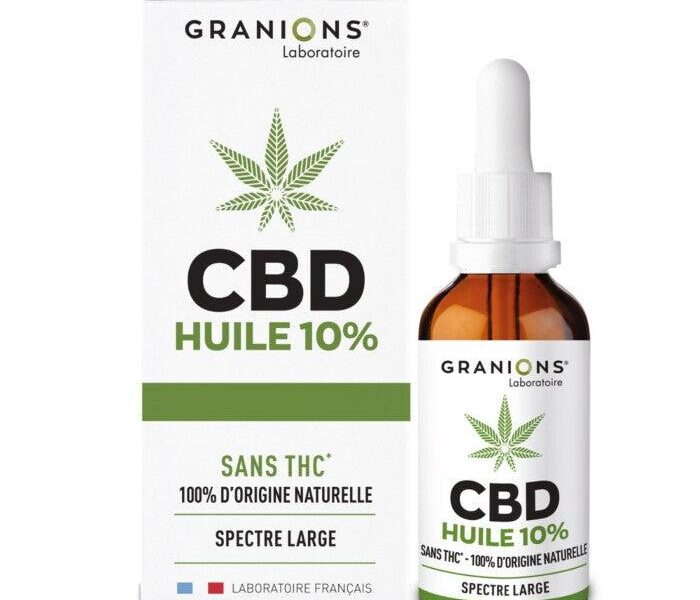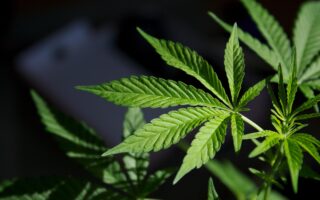As the conversation surrounding cannabis continues to evolve, two terms frequently emerge: CBD and marijuana. While they are often mentioned in tandem, many people find themselves unsure about the distinctions and similarities between the two. Is CBD simply a derivative of marijuana, or does it belong to a different conversation altogether? This article aims to unravel the complexities of these two entities by delving into their origins, uses, and the science that binds or separates them. Join us on this informative journey as we explore whether CBD and marijuana are truly two sides of the same coin, or if they represent divergent paths in the ever-expanding world of cannabis.
Table of Contents
- Understanding the Fundamental Differences Between CBD and Marijuana
- Exploring the Legal Landscape: What You Need to Know
- The Health Benefits: Can CBD Compete with Marijuana?
- Choosing Wisely: Recommendations for Safe and Effective Use
- Q&A
- Key Takeaways
Understanding the Fundamental Differences Between CBD and Marijuana
The distinction between CBD and marijuana lies primarily in their origins and effects on the body. Cannabidiol (CBD) is a compound derived from the hemp plant, which is a variety of cannabis that contains low levels of THC (tetrahydrocannabinol). This means that CBD products can be derived from hemp and typically contain less than 0.3% THC, ensuring that they do not produce the psychoactive effects often associated with marijuana. On the other hand, marijuana is cultivated specifically for its higher THC content, which is responsible for the “high” sensation. Consumers seeking therapeutic benefits often gravitate towards CBD for its potential health advantages without the intoxicating effects of THC.
Another key difference is the legal landscape governing these compounds. In many places, CBD is legal and readily available in various forms such as oils, capsules, and topical creams, allowing for medicinal use without legal complications. Conversely, marijuana’s legality varies widely, often dependent on local laws regarding recreational or medical use. Below is a simple comparison highlighting these differences:
| Feature | CBD | Marijuana |
|---|---|---|
| Source | Hemp plant | Cannabis plant |
| THC Level | Less than 0.3% | Higher than 0.3% |
| Psychoactive Effects | None | Yes |
| Legal Status | Generally legal | Varies by location |
Exploring the Legal Landscape: What You Need to Know
The conversation surrounding CBD and marijuana often leads to confusion, particularly regarding their legal status and health implications. While both originate from the cannabis plant, the key distinction lies in their chemical composition. CBD, or cannabidiol, is primarily derived from hemp, a variety of cannabis that contains less than 0.3% THC, the psychoactive compound that induces a “high.” On the other hand, marijuana typically contains higher levels of THC. As a result, the legal landscape surrounding these products can vary widely based on regional regulations, requiring consumers to stay informed about local laws before making purchases.
Understanding these differences is crucial not only for compliance with the law but also for making informed choices about usage. Here are some essential considerations to keep in mind:
- Federal vs. State Law: CBD derived from hemp is federally legal in many places, while marijuana may not be.
- Medical vs. Recreational Use: Laws vary significantly based on whether the product is meant for medical or recreational use.
- Product Purity: It’s vital to choose high-quality, lab-tested products to ensure safety and potency.
To provide a clearer picture, here’s a simple comparison of CBD and marijuana:
| Aspect | CBD | Marijuana |
|---|---|---|
| Source | Hemp | Cannabis |
| THC Content | Less than 0.3% | Typically 15-30% |
| Legal Status | Mostly Legal | Varies by State |
| Psychoactive Effects | No | Yes |
The Health Benefits: Can CBD Compete with Marijuana?
The health benefits of CBD and marijuana have both captured public interest, especially with the changing perceptions surrounding cannabis use. While they both originate from the same plant, Cannabis sativa, their effects diverge significantly. CBD, or cannabidiol, is primarily praised for its therapeutic properties without the intoxicating effects associated with THC (tetrahydrocannabinol), the psychoactive compound found in marijuana. Many users have reported relief from a variety of ailments, such as:
- Anxiety and Depression: CBD is known to help reduce anxiety levels.
- Pain Relief: It may alleviate chronic pain and inflammation.
- Sleep Disorders: Users often find improved sleep quality and duration.
- Seizure Disorders: CBD has gained FDA approval for treating rare forms of epilepsy.
Conversely, marijuana, with its higher THC content, offers a different experience. Users find it useful for similar conditions but may also seek the euphoric “high” it provides, which can be both a benefit and a downside depending on individual health needs and contexts. A comparison of the two can be illustrated in the table below:
| Aspect | CBD | Marijuana |
|---|---|---|
| Psychoactive Effects | No | Yes |
| Legality | Varies by state | Varies significantly |
| Main Use | Therapeutic | Recreational and therapeutic |
| Common Conditions Treated | Seizures, anxiety, pain | Pain, nausea, insomnia |
Choosing Wisely: Recommendations for Safe and Effective Use
When evaluating the safe and effective use of CBD, it’s crucial to understand its origins and properties compared to marijuana. Both compounds are derived from the Cannabis sativa plant, yet they have distinct differences. These differences play a significant role in their legal status, effects, and potential benefits. Here are some key points to consider:
- CBD (Cannabidiol): Primarily extracted from hemp and contains negligible levels of THC, the psychoactive component of cannabis.
- Marijuana: Typically contains a higher concentration of THC, which is responsible for the “high” associated with its use.
- Legal Status: CBD has gained legal acceptance in many regions, while marijuana remains restricted in several areas due to its THC content.
- Health Benefits: CBD is often touted for its therapeutic effects, such as pain relief and anxiety reduction, without the mind-altering effects associated with marijuana.
For those considering CBD as a health supplement, looking for reputable brands and understanding product labels is essential. A well-structured approach should include:
| Factor | Importance |
|---|---|
| Source of CBD | Organic hemp versus synthetic sources |
| Third-Party Testing | Ensures potency and purity of the product |
| Extraction Method | CO2 extraction is preferred for safety |
| Dosage Information | Guidance on proper usage is critical for effectiveness |
Q&A
Q&A: Is CBD the Same as Marijuana?
Q: What exactly is CBD?
A: CBD, or cannabidiol, is one of over 100 compounds found in the cannabis plant. Unlike its more famous cousin, THC (tetrahydrocannabinol), CBD does not produce a psychoactive effect, meaning it won’t get you “high.”
Q: What about marijuana? Isn’t it just the same as CBD?
A: Not quite. Marijuana refers to the whole cannabis plant, which can contain varying levels of THC and CBD, along with other compounds. Marijuana is often associated with the high it can produce due to THC. Meanwhile, CBD can be derived from both marijuana and hemp plants, with hemp being defined as cannabis containing less than 0.3% THC.
Q: Can CBD come from hemp?
A: Yes! In fact, many commercially available CBD products are derived from hemp, as it usually has a higher concentration of CBD and lower levels of THC. This allows for the manufacturing of products that can be legally sold in many places, given that they contain minimal THC.
Q: Is CBD legal? And how does that relate to marijuana?
A: The legality of CBD can be a bit of a tangled web! In the United States, the 2018 Farm Bill legalized hemp-derived CBD products containing less than 0.3% THC. However, marijuana remains illegal at the federal level, even as many states have legalized it for medical and recreational use. So, while CBD is legal in many places, marijuana laws vary significantly by location.
Q: Do CBD and marijuana provide the same health benefits?
A: This is a nuanced topic. Both CBD and marijuana have been reported to offer various therapeutic benefits, such as pain relief, anxiety reduction, and anti-inflammatory properties. However, the way they affect the body can differ due to the presence of THC in marijuana and the absence of it in most CBD products. If you’re looking for a psychoactive experience, marijuana is your go-to. For those seeking relief without the high, CBD may be the preferred option.
Q: Are there any side effects to using CBD or marijuana?
A: Both substances can cause side effects, although they tend to differ. CBD is generally well-tolerated, though some might experience fatigue, diarrhea, or changes in appetite. Marijuana, on the other hand, can lead to more pronounced effects like euphoria, increased heart rate, and potential impairments in memory or motor skills—thanks largely to its THC content.
Q: So, are CBD and marijuana the same?
A: In the simplest terms, no, CBD and marijuana are not the same. CBD is a specific compound found in cannabis, while marijuana typically refers to the whole plant that contains both CBD and THC, among other compounds. Understanding this distinction can help you make informed choices about their use and benefits!
Key Takeaways
while CBD and marijuana may share the same botanical family, their roles in wellness and recreation diverge significantly. CBD, with its roots in hemp and its promise of therapeutic benefits without the high, invites a conversation about the potential of cannabis beyond recreation. On the other hand, marijuana, rich in THC, continues to be a source of both relief and euphoria. As our understanding of these compounds deepens, it’s essential to recognize that they are unique in both character and application. Whether you are drawn to the calming embrace of CBD or the vibrant experience offered by marijuana, informed choices can lead to a more enriching engagement with this versatile plant. As we continue to navigate the evolving landscape of cannabis, let’s remember that knowledge empowers the journey towards understanding, wellness, and personal enrichment.


